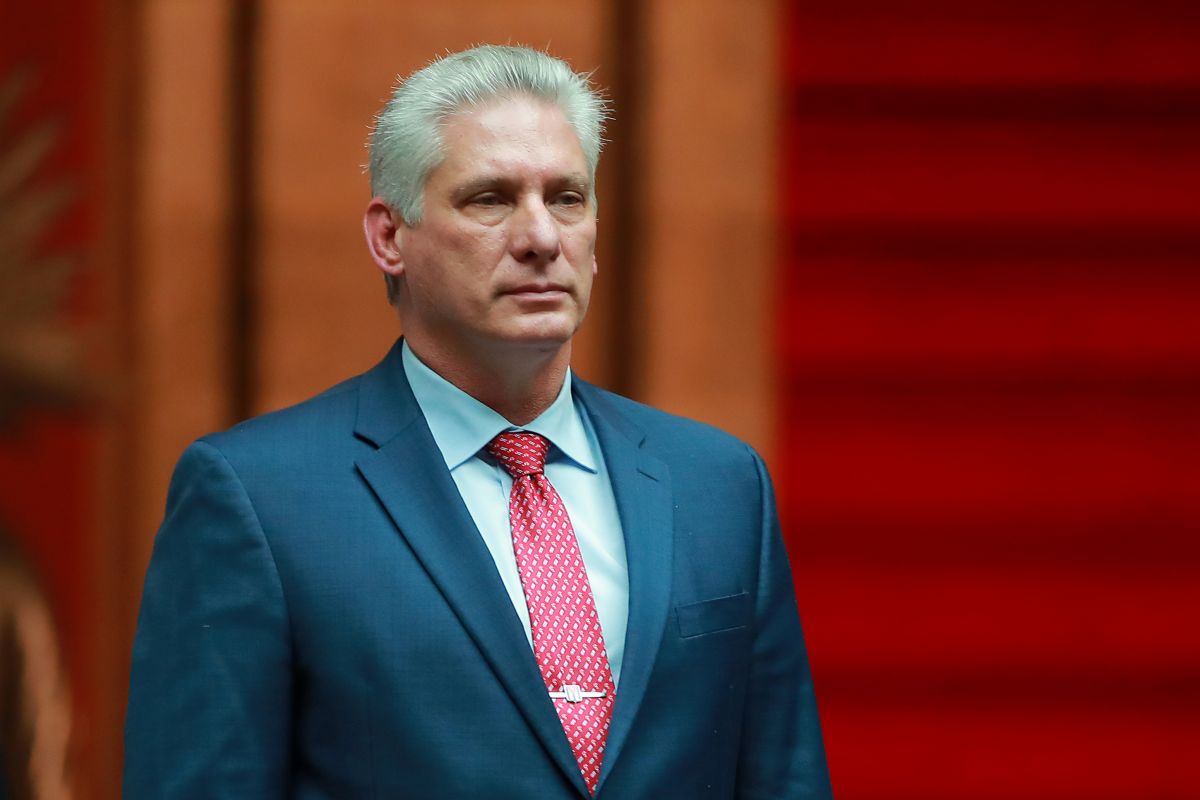The president of Cuba, Miguel Díaz-Canel, reaffirmed this Monday the will to maintain dialogues with the United States that lead to a rapprochement between the two countries, but on the basis of “equal conditions”.
“We are proposing the will, with all due respect and with all the capacity to be on equal terms, to be able to have dialogues that bring both countries closer together”, declared the president during the inauguration of the International Fair of Havana (Fihav).
Díaz-Canel said that for a long time “there have been lights” for commercial relations to exist between the two nations, which in the last six decades have maintained a tense conflict and that achieved a pause in the period known as “thaw” between 2015 and 2018.
“We have never put up a barrier with that. It has been the blockade (economic embargo) that has put up the barriers,” said the president.
He also pointed out that Cuba has been “insisting that foreign investment is open also for North American companies and for Cuban-Americans”.
But he considered that, even if there is a will, “the blockade and the restrictions of the blockade prevent many of these negotiations”, both on the US and Cuban sides, and even that “companies from other countries can participate”.
In addition, he said that “a lot of progress has been made, steps are being taken” during the conversations on the migratory issue carried out by officials of the two nations the previous week in Havana.
Normalization of the migratory issue
The US government has adopted several measures in recent months to advance in the normalization of the migratory issue, such as the gradual increase in its consular services on the island, the reestablishment of a family reunification program, suspended since 2017, the resumption of commercial flights and the authorization of educational and professional trips.
Cuba is going through a serious economic crisis due to the combination of the pandemic, the tightening of US sanctions and internal errors in macroeconomic management.
The edition 38 of the Fair of Havana -the first after the pause forced by the pandemic- brings together businessmen from 62 countries in the island’s capital until next Friday, including a group of Cuban-Americans and Americans.
Jay Brickman, one of the North American businessmen present at FIHAV, told EFE that he sees “a radical approach on the part of the Government of Cuba regarding the private sector and we have seen in this a demand for our service”.
The vice-president of the firm Crowley -emp who has been doing business with Cuba for 21 years- described the experience of her service with the island as “unique”, especially for “having learned a lot in the process of how to work in the environment that exists between the two countries”.
